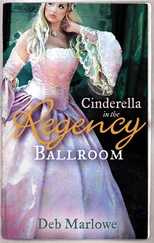Title Page CINDERELLA And Other Stories by Richard Harding Davis
CINDERELLA
MISS DELAMAR'S UNDERSTUDY
THE EDITOR'S STORY
AN ASSISTED EMIGRANT
THE REPORTER WHO MADE HIMSELF KING
Imprint
CINDERELLA
And Other Stories
by
Richard Harding Davis
The servants of the Hotel Salisbury, which is so called because it is situated on Broadway and conducted on the American plan by a man named Riggs, had agreed upon a date for their annual ball and volunteer concert, and had announced that it would eclipse every other annual ball in the history of the hotel. As the Hotel Salisbury had been only two years in existence, this was not an idle boast, and it had the effect of inducing many people to buy the tickets, which sold at a dollar apiece, and were good for "one gent and a lady," and entitled the bearer to a hat-check without extra charge.
In the flutter of preparation all ranks were temporarily levelled, and social barriers taken down with the mutual consent of those separated by them; the night-clerk so far unbent as to personally request the colored hall-boy Number Eight to play a banjo solo at the concert, which was to fill in the pauses between the dances, and the chambermaids timidly consulted with the lady telegraph operator and the lady in charge of the telephone, as to whether or not they intended to wear hats.
And so every employee on every floor of the hotel was working individually for the success of the ball, from the engineers in charge of the electric light plant in the cellar, to the night-watchman on the ninth story, and the elevator-boys who belonged to no floor in particular.
Miss Celestine Terrell, who was Mrs. Grahame West in private life, and young Grahame West, who played the part opposite to hers in the Gilbert and Sullivan Opera that was then in the third month of its New York run, were among the honored patrons of the Hotel Salisbury. Miss Terrell, in her utter inability to adjust the American coinage to English standards, and also in the kindness of her heart, had given too generous tips to all of the hotel waiters, and some of this money had passed into the gallery window of the Broadway Theatre, where the hotel waiters had heard her sing and seen her dance, and had failed to recognize her young husband in the Lord Chancellor's wig and black silk court dress. So they knew that she was a celebrated personage, and they urged the maître d'hôtel to invite her to the ball, and then persuade her to take a part in their volunteer concert.
Paul, the head-waiter, or "Pierrot," as Grahame West called him, because it was shorter, as he explained, hovered over the two young English people one night at supper, and served them lavishly with his own hands.
"Miss Terrell," said Paul, nervously,—"I beg pardon, Madam, Mrs. Grahame West, I should say,—I would like to make an invitation to you."
Celestine looked at her husband inquiringly, and bowed her head for Paul to continue.
"The employees of the Salisbury give the annual ball and concert on the sixteenth of December, and the committee have inquired and requested of me, on account of your kindness, to ask you would you be so polite as to sing a little song for us at the night of our ball?"
The head-waiter drew a long breath and straightened himself with a sense of relief at having done his part, whether the Grahame Wests did theirs or not.
As a rule, Miss Terrell did not sing in private, and had only broken this rule twice, when the inducements which led her to do so were forty pounds for each performance, and the fact that her beloved Princess of Wales was to be present. So she hesitated for an instant.
"Why, you are very good," she said, doubtfully. "Will there be any other people there,—any one not an employee, I mean?"
Paul misunderstood her and became a servant again.
"No, I am afraid there will be only the employees, Madam," he said.
"Oh, then, I should be very glad to come," murmured Celestine, sweetly. "But I never sing out of the theatre, so you mustn't mind if it is not good."
The head-waiter played a violent tattoo on the back of the chair in his delight, and balanced and bowed.
"Ah, we are very proud and pleased that we can induce Madam to make so great exceptions," he declared. "The committee will be most happy. We will send a carriage for Madam, and a bouquet for Madam also," he added grandly, as one who was not to be denied the etiquette to which he plainly showed he was used.
"Will we come?" cried Van Bibber, incredulously, as he and Travers sat watching Grahame make up in his dressing-room. "I should say we would come. And you must all take supper with us first, and we will get Letty Chamberlain from the Gaiety Company and Lester to come too, and make them each do a turn."
"And we can dance on the floor ourselves, can't we?" asked Grahame West, "as they do at home Christmas-eve in the servants' hall, when her ladyship dances in the same set with the butler and the men waltz with the cook."
"Well, over here," said Van Bibber, "you'll have to be careful that you're properly presented to the cook first, or she'll appeal to the floor committee and have you thrown out."
"The interesting thing about that ball," said Travers, as he and Van Bibber walked home that night, "is the fact that those hotel people are getting a galaxy of stars to amuse them for nothing who wouldn't exhibit themselves at a Fifth Avenue dance for all the money in Wall Street. And the joke of it is going to be that the servants will vastly prefer the banjo solo by hall-boy Number Eight."
Lyric Hall lies just this side of the Forty-second Street station along the line of the Sixth Avenue Elevated road, and you can look into its windows from the passing train. It was after one o'clock when the invited guests and their friends pushed open the storm-doors and were recognized by the anxious committee-men who were taking tickets at the top of the stairs. The committee-men fled in different directions, shouting for Mr. Paul, and Mr. Paul arrived beaming with delight and moisture, and presented a huge bouquet to Mrs. West, and welcomed her friends with hospitable warmth.
Mrs. West and Miss Chamberlain took off their hats and the men gave up their coats, not without misgivings, to a sleepy young man who said pleasantly, as he dragged them into the coat-room window, "that they would be playing in great luck if they ever saw them again."
"I don't need to give you no checks," he explained: "just ask for the coats with real fur on 'em. Nobody else has any."
There was a balcony overhanging the floor, and the invited guests were escorted to it, and given seats where they could look down upon the dancers below, and the committee-men, in dangling badges with edges of silver fringe, stood behind their chairs and poured out champagne for them lavishly, and tore up the wine-check which the barkeeper brought with it, with princely hospitality.
The entrance of the invited guests created but small interest, and neither the beauty of the two English girls nor Lester's well-known features, which smiled from shop-windows and on every ash-barrel in the New York streets, aroused any particular comment. The employees were much more occupied with the Lancers then in progress, and with the joyful actions of one of their number who was playing blind-man's-buff with himself, and swaying from set to set in search of his partner, who had given him up as hopeless and retired to the supper-room for crackers and beer.
Some of the ladies wore bonnets, and others wore flowers in their hair, and a half-dozen were in gowns which were obviously intended for dancing and nothing else. But none of them were in décolleté gowns. A few wore gloves. They had copied the fashions of their richer sisters with the intuitive taste of the American girl of their class, and they waltzed quite as well as the ladies whose dresses they copied, and many of them were exceedingly pretty. The costumes of the gentlemen varied from the clothes they wore nightly when waiting on the table, to cutaway coats with white satin ties, and the regular blue and brass-buttoned uniform of the hotel.
Читать дальше












